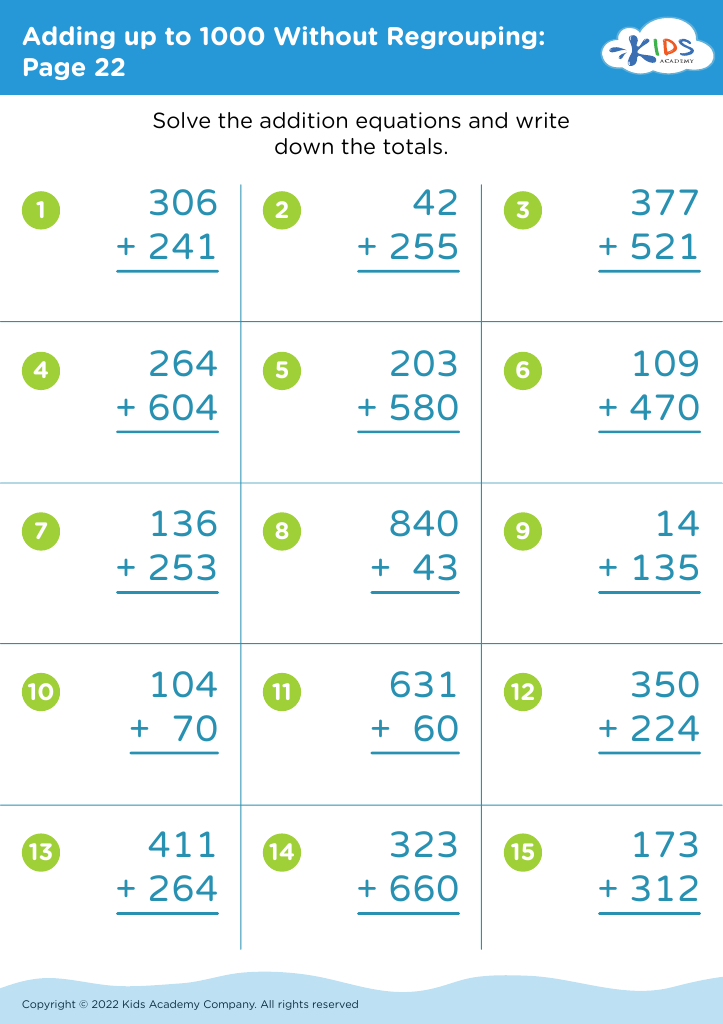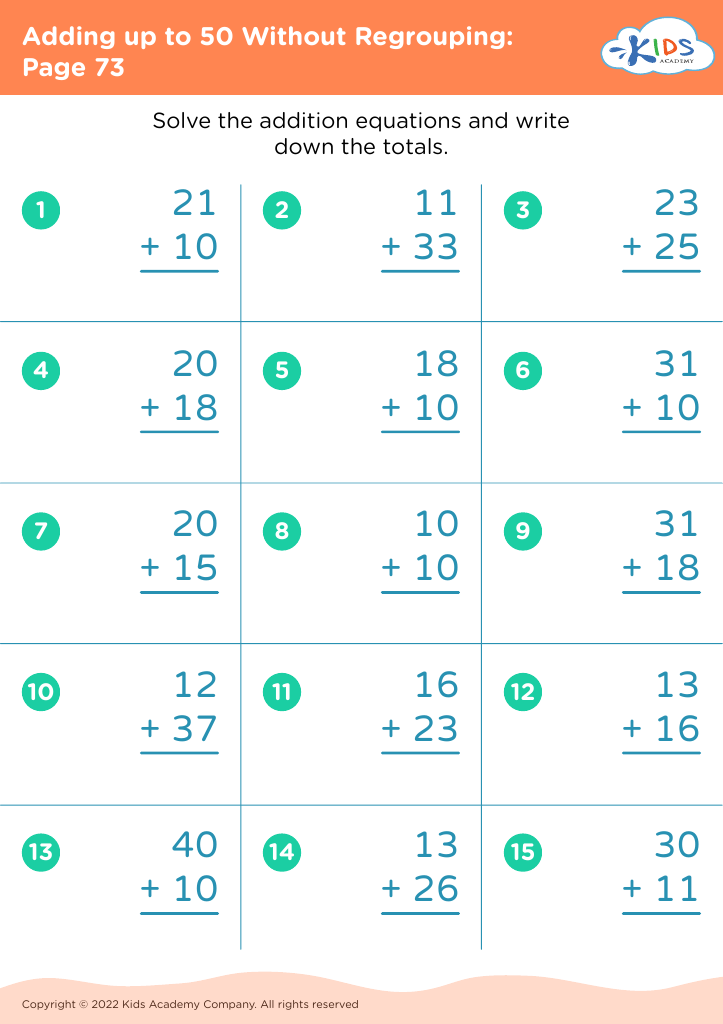Problem Solving Addition Worksheets for Ages 6-8
11 filtered results
-
From - To
Enhance your child's math skills with our "Problem Solving Addition Worksheets for Ages 6-8." These engaging, printable worksheets are tailored to challenge young learners and develop their problem-solving abilities. Each worksheet features fun and relatable scenarios that encourage critical thinking while practicing addition. Designed by educational experts, the activities help kids strengthen their mathematical fluency and confidence. Perfect for classroom use or at-home learning, our worksheets make math both enjoyable and effective. Give your child the tools they need to succeed in math by visiting Kids Academy today!
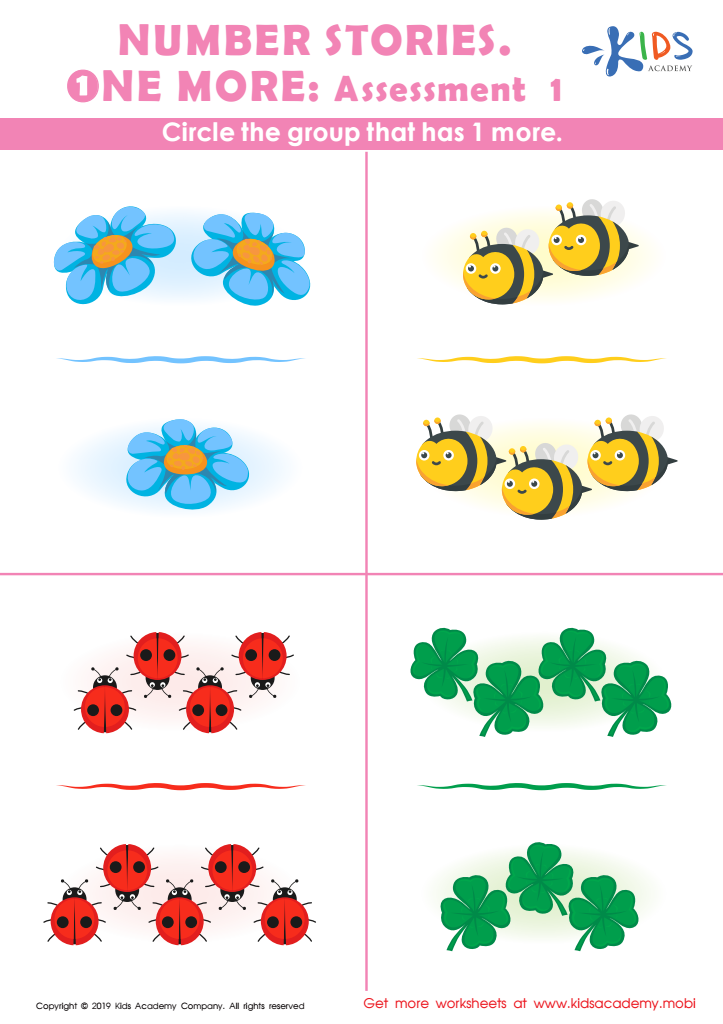

Number Stories One More – Assessment 1 Worksheet
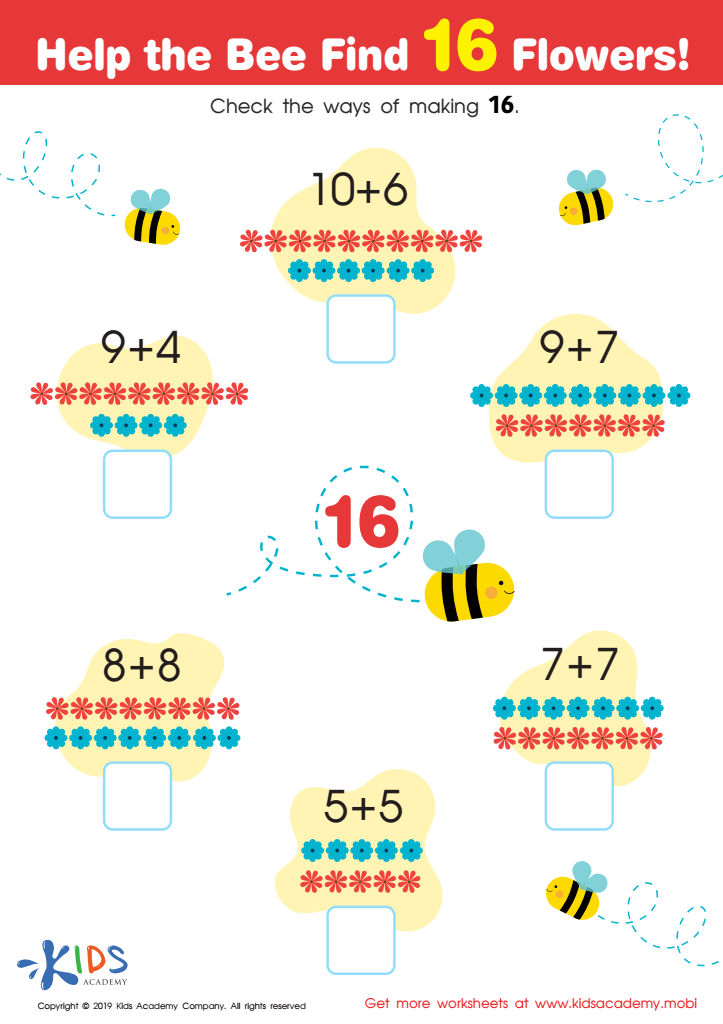

Help the Bee Find 16 Flowers Worksheet
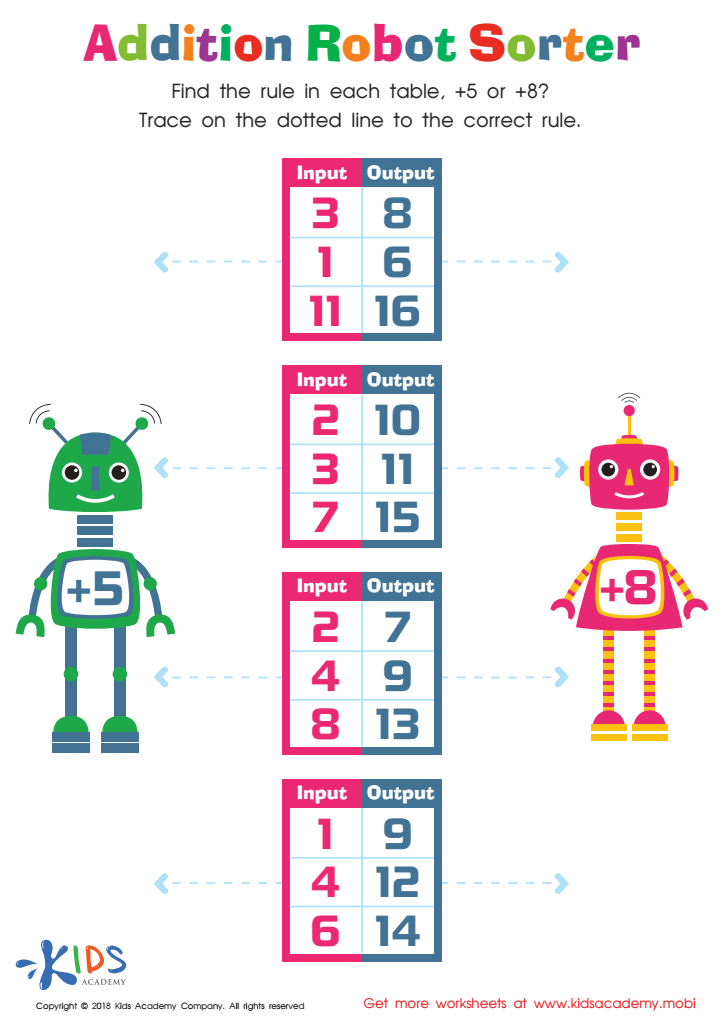

Addition Robot Sorter Worksheet
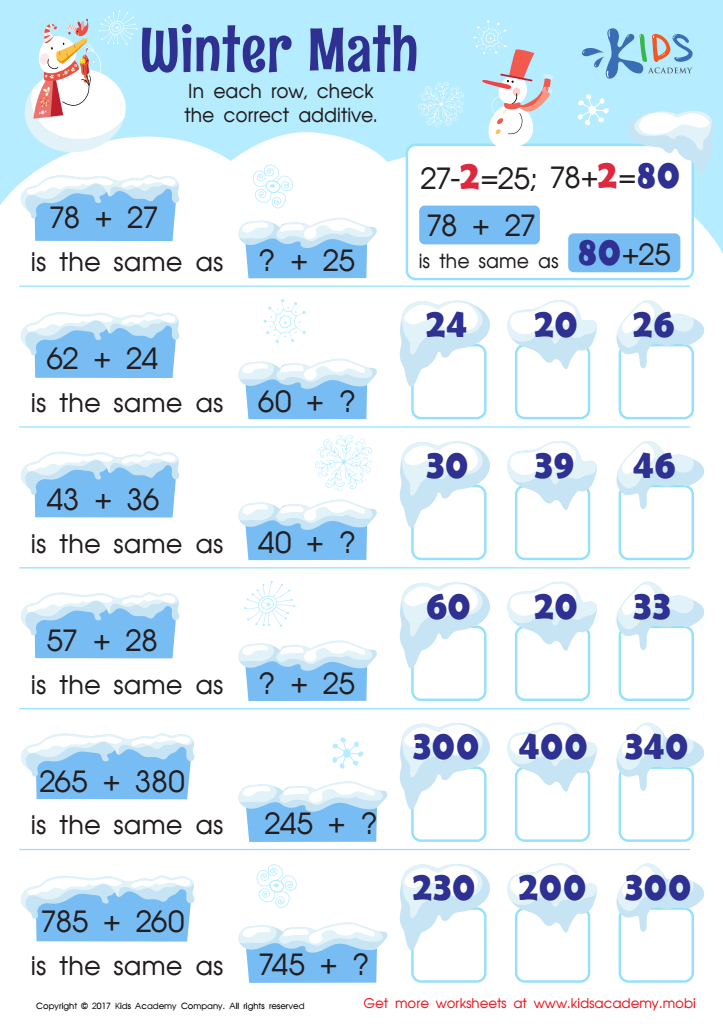

Free Addition Worksheet
Problem-solving addition is essential for children aged 6-8 because it lays the groundwork for their future academic success and everyday life skills. During these formative years, children's brains are exceptionally receptive to new concepts, making it an ideal time to introduce foundational math skills. By focusing on problem-solving addition, parents and teachers help children develop critical thinking and analytical abilities. These skills are vital not only for math but for science, reading comprehension, and even social activities that require logical thinking.
Moreover, mastering addition enhances children's confidence and fosters a positive attitude toward learning. It empowers them to tackle complex problems calmly and resourcefully. In daily life, addition skills translate to understanding money, time, and measurements, making kids more self-sufficient.
Additionally, teaching problem-solving promotes perseverance. As children work through addition problems, they learn the value of effort and the satisfaction of finding solutions after facing challenges. This agreeable struggle aids in developing resilience and a growth mindset, traits that are advantageous throughout their lives.
Therefore, parents and teachers should prioritize problem-solving addition, as it not only boosts young children's arithmetic skills but also cultivates essential life skills, setting a strong educational foundation for their future endeavors.


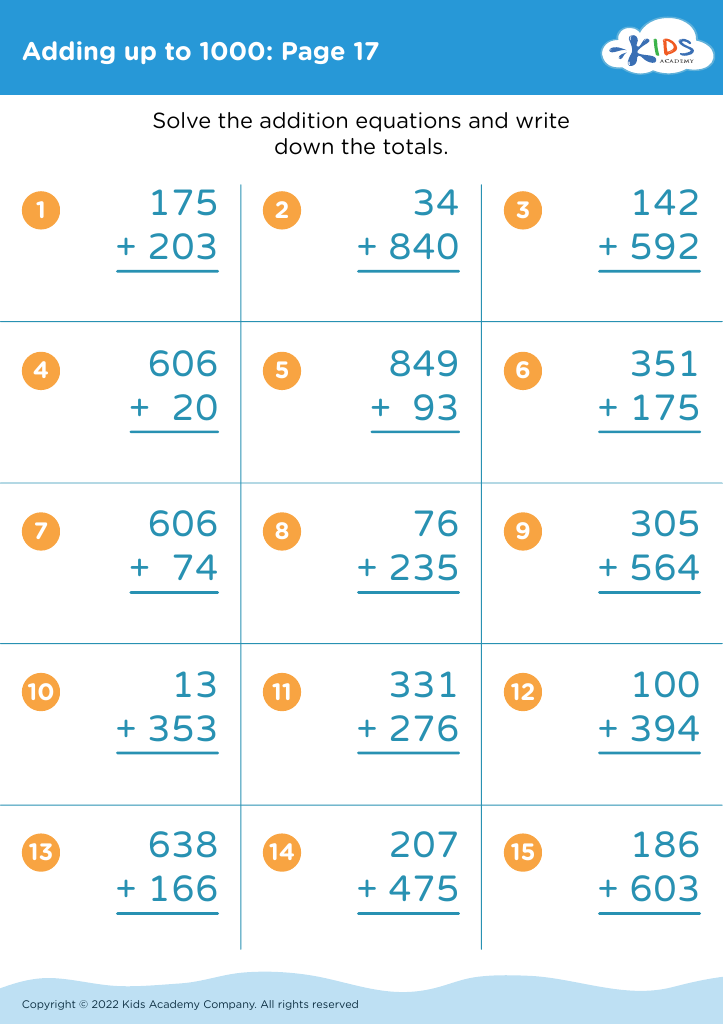
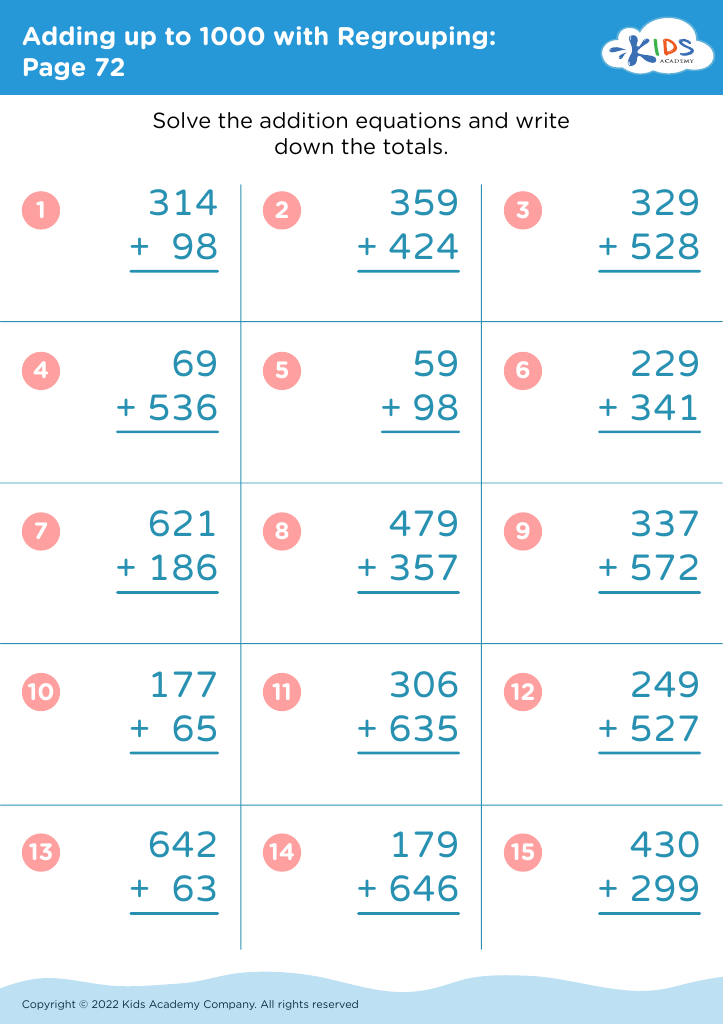
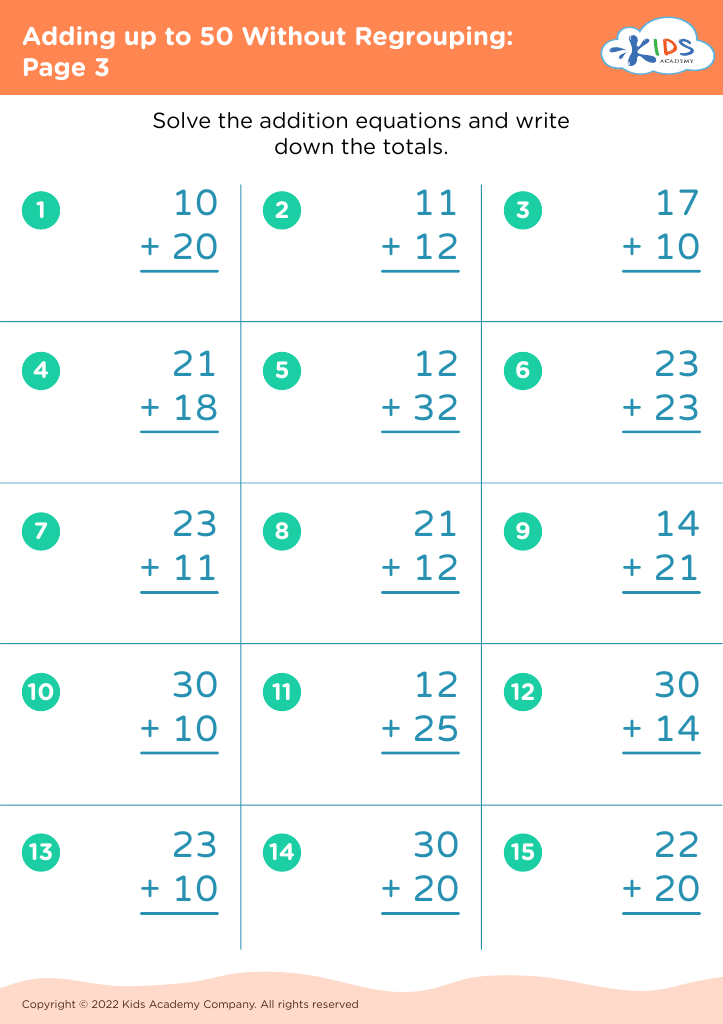
 Assign to My Students
Assign to My Students


